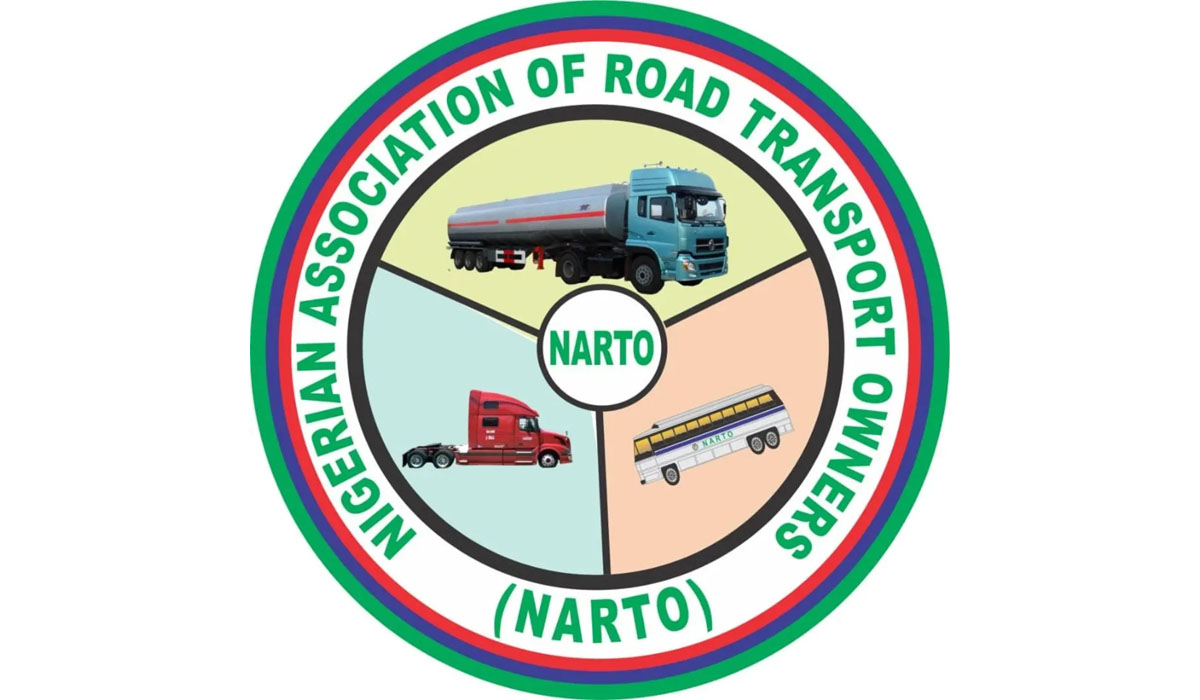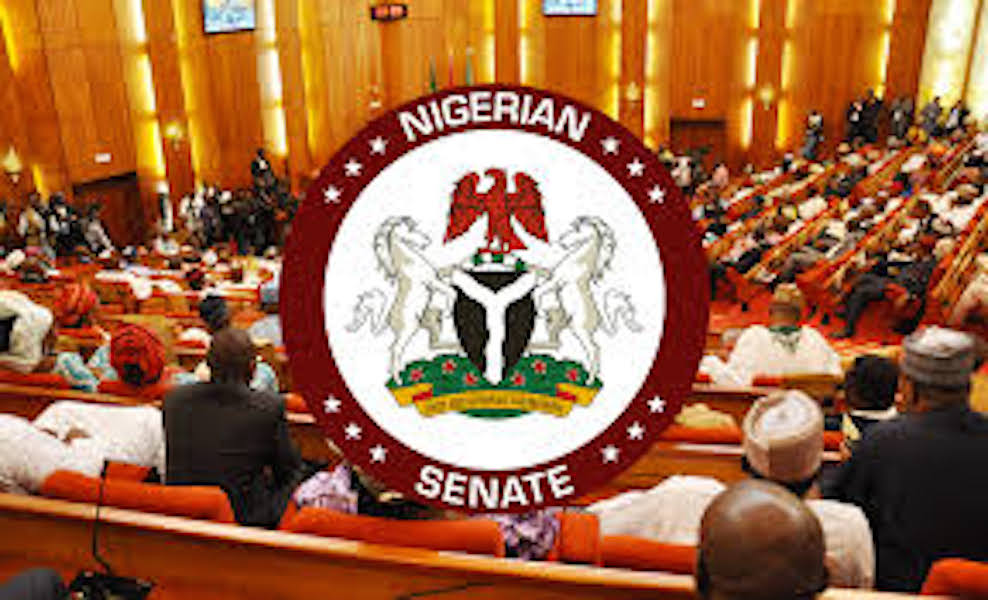News
Petrol scarcity looms as transporters threaten to stop product lifting

Petrol scarcity looms as transporters threaten to stop product lifting
The Nigerian Association of Road Transport Owners (NARTO) vowed on Thursday to stop lifting petroleum products beginning next Monday due to the high cost of operations.
Chronicle NG reports that Nigeria may witness another round of petrol scarcity when NARTO ceases operations on Monday.
NARTO members have repeatedly raised concern over the high cost of diesel required to power their trucks for the transportation of petroleum products across the country.
Oil marketers told reporters on Thursday that the price of diesel is between N1,250 and N1,400 per litre, depending on the area of purchase.
NARTO’s President, Yusuf Othman, said in a statement he issued in Abuja on Thursday that the statement was an official announcement from the association’s headquarters that members of the group would park their trucks on Monday.
“Why? It is because what we spend on operations is more than what we get in total, both in local and bridging,” he stated.
Othman said NARTO members were operating at a loss, and it was no longer sustainable for them to endure the losses.
“We will have to suspend operations from now until Monday. We cannot continue to operate at a loss. Most people have parked. A lot more are going to park. But from the point of view of the association itself, we are going to suspend operations on Monday,” he stated.
He said NARTO’s efforts to get the intervention of key stakeholders, the federal government, and industry operators had not yielded positive results.
READ ALSO:
- Jimi Solanke, Wasiu Ayinde and the cartoon called Nigeria
- Why we’ll continue to approve more universities – NUC
- Kano Censorship Board revokes licenses of Kannywood, Amart entertainment
The NARTO president said the association had written letters on the unbearable cost of operations to the Chief of Staff to President Bola Tinubu, the Minister of Petroleum Resources, the Department of State Services, the Nigerian Midstream and Downstream Regulatory Authority, the Nigerian National Petroleum Company Limited, and oil marketers.
“We have written letters up to the level of the Chief of Staff to the President. We have written to the Minister of Petroleum Resources (Oil). We have written to the Director-General of SSS. We have written to NNPC’s boss. We have written to the NMDPRA. We have written to the major marketers,” Othman stated.
He stressed that despite the letters, there has been “no response.”
Analysing the market situation, which the members have endured for several months, he stated that the same freight rate that applied when former President Muhammadu Buhari was in office was still subsisting.
“The Lagos to Abuja freight rate that was implemented when the dollar was N650 is still retained now that the dollar is N1,615. Everybody is aware that all our consumables, in terms of operation, are not produced in the country.
“So, by virtue of the rate of dollars, every consumable has increased. But the freight they are paying us has been the same since Buhari’s time. So how is that feasible? During Buhari’s time, one dollar was N650. Today, the dollar is N1,615. The average freight from Lagos to Abuja is N32,” he stated.
Othman further explained that “what I mean by local is that when you load in Lagos, you discharge in Lagos. And bridging means that when you load from Lagos, you come to Abuja. Lagos to Lagos, we are paid N120,000.
“AGO (diesel) alone to distribute fuel within Lagos is N140,000 because it is N1,400/litre. So, they give you N120,000, and you spend N140,000. So, how do you want to operate? You’ve not talked about the cost of vehicles, the cost of loading, or the driver’s allowance. That is for local.”
READ ALSO:
- I’ll leave in summer, Mbappe tells PSG directors
- Missing lady: Police arrest prophet, 6 other ritualists for killing lady to make N200m in 7 days
- Dollar hits N1,600 at parallel market
He stated that the cost of moving products out of Lagos or Warri to other states was far higher than what the government was paying to tanker drivers as bridging claims.
The government pays an agreed sum to transporters of petroleum products as bridging claims in order to ensure equality in the pump prices of these products across states, though this has not been the case.
NARTO is the umbrella organisation for commercial vehicle owners in Nigeria. The association represents the interests of those involved in the haulage of petroleum products, general cargoes, and passenger movement within the country and the West African sub-region.
NARTO has expressed several concerns regarding transporting petroleum products in Nigeria, impacting both their members and the overall efficiency of the process.
It has complained of poor road conditions, as frequent potholes, dilapidated bridges, and lack of proper maintenance lead to increased wear and tear on vehicles, higher running costs, and longer journey times.
The association has also raised concern about traffic congestion, particularly around ports and depots, as this adds significantly to delivery delays and further increases operational costs.
On inadequate parking facilities, NARTO stated that the lack of safe and designated parking areas often forced drivers to park in unsafe locations, leading to security risks and fatigue.
It had also raised concerns about the multiple checkpoints in Nigeria, as numerous security checkpoints could cause unnecessary delays and harassment for drivers.
Another issue is delayed payments, as late payments from oil marketers create cash flow problems for transporters.
Also, the association has called for safety because the theft of petroleum products, pipeline vandalism, and other security threats create risks for drivers and equipment.
On policy and regulatory concerns, NARTO had observed that some depots limit access to specific transporters, impacting competition and efficiency.
It had stated that inconsistent or ambiguous regulations could lead to confusion and enforcement challenges, adding that transporters often struggled to access affordable financing for vehicle maintenance and upgrades.
Petrol scarcity looms as transporters threaten to stop product lifting
chronicle
News
Drama as Delta workers boo Gov Oborevwori over minimum wage

Drama as Delta workers boo Gov Oborevwori over minimum wage
Delta State workers expressed their disappointment with Governor Sheriff Oborevwori on Wednesday as he failed to address the issue of minimum wage during the 2024 May Day celebration in Asaba, themed “People First.”
Anticipating news on the minimum wage, the workers were disheartened when the Governor concluded his speech without mentioning it, prompting them to chant, “no, no, no, we no gree, pay us our minimum wage.”
Despite the interruption, Oborevwori stood firm, stating, “Listen to me, listen to me, calm down, calm down, you cannot cajole me.”
The celebration, which included a march past by various affiliate unions, turned sour due to the workers’ dissatisfaction with the governor’s silence on the wage issue.
READ ALSO:
- Neighbour, son beat mother of four to death in Edo
- London sword attack leaves British-Nigerian teenager dead
- Lagos uncovers 86 rooms under Ikoyi bridge where tenants pay N250,000 rent
According to a union leader, previous attempts to address the matter with the Governor proved futile.
In response, Governor Oborevwori announced plans to establish a committee to address the workers’ demand for salary increases amidst prevailing economic challenges. He praised the workers for their support and assured them of his administration’s commitment to workers’ welfare.
“I have listened attentively to your requests, and I have taken note of them; they are, no doubt, legitimate demands and as a responsible government, I will deliberate with my team on how best to address them within the limits of the resources available to us,” he affirmed.
In a statement delivered by Comrade Goodluck Ofobruku, the State Chairman of the Nigeria Labour Congress, NLC, he emphasized the importance of politicians keeping their promises, stating, “We want promise keeper politicians because, as workers, we keep records of promises.”
Drama as Delta workers boo Gov Oborevwori over minimum wage
News
Two million bank accounts closed over BVN, NIN, others

Two million bank accounts closed over BVN, NIN, others
Commercial banks in Nigeria closed 2.021 million bank accounts in the first quarter of 2024, Q1’24, to clean their books of questionable accounts and comply with regulatory orders on the linkage of bank accounts to the National Identity Number, NIN.
This is contained in a report by the Nigerian Interbank Settlement System, NIBSS, which also indicated that the number of inactive bank accounts grew month-on-month, MoM, by four million or 2.0 per cent to 19.7 million in March 2024 from 19.3 million in the previous month, February.
A bank account is classified inactive when it records zero transactions including deposits, withdrawals, transfers or point-of-sale transactions for six months.
READ ALSO:
- Senate insists on 16 years as requirement for tertiary institution admission in Nigeria
- Minimum wage: Labour threatens nationwide strike by end of May
- UCL: Füllkrug gives Dortmund 1-0 first-leg win over PSG
However, details of the “Industry Bank Account Database”, a monthly data reported by banks, and compiled by the Nigerian Interbank Settlement System, NIBSS, also indicated that the number of active bank accounts grew by 6.62 million or 3.0 per cent to 219.64 million from 213.02 million in February.
Recall that in December 2023, the CBN issued a directive to all commercial banks in the country to restrict tier-1 accounts without proper Biometric Verification Number, BVN, and National Identity Number, NIN, that are not linked by Thursday, March 1st, 2024.
According to NIBSS data on BVN enrollment count, 61.6 million Nigerians have BVN as of April 2024.
Two million bank accounts closed over BVN, NIN, others
News
Senate insists on 16 years as requirement for tertiary institution admission in Nigeria

Senate insists on 16 years as requirement for tertiary institution admission in Nigeria
The Nigerian Senate has moved to clarify recent discussions regarding the minimum age requirement for admission into tertiary institutions.
The red chamber assured Nigerians that the current age requirement of 16 years has not been altered and that recent comments suggesting an increase to 18 years were personal opinions.
READ ALSO:
- Minimum wage: Labour threatens nationwide strike by end of May
- UCL: Füllkrug gives Dortmund 1-0 first-leg win over PSG
- Adopt quarterly exchange rate for Customs duty, economist advises FG
Chairman of the Senate Committee on Media and Public Affairs, Adeyemi Adaramodu, emphasised that any changes to the age requirement would require legislative action following due process.
Adaramodu explained in an interview with journalists that comments made by the Minister of Education, Prof. Tahir Mamman, about increasing the minimum age limit were not legally binding but rather personal opinions.
The Minister of Education had previously hinted at plans to review and raise the minimum age for admission into tertiary institutions to 18 years.
Senate insists on 16 years as requirement for tertiary institution admission in Nigeria
-

 metro1 day ago
metro1 day agoLabour Day: Nigerian workers are dedicated, resilient, says NURTW leader
-

 Education3 days ago
Education3 days agoBREAKING: JAMB releases 2024 UTME results
-

 Auto16 hours ago
Auto16 hours agoAppeal court takes over NURTW case as NIC withdraws
-

 News2 days ago
News2 days agoFG set to repatriate 20,000 Nigerians from Chad, Cameroon
-

 News2 days ago
News2 days agoAmid fuel scarcity, petrol marketers threaten to withdraw services over ₦200bn debt
-

 News3 days ago
News3 days agoGanduje probe: Kano commission invites public for information
-

 metro3 days ago
metro3 days agoBREAKING: Suspected herders kill 3 mourners, farmers in Enugu
-

 News3 days ago
News3 days agoTerrorist negotiator Tukur Mamu seeks transfer out of DSS custody to Kuje prison




















